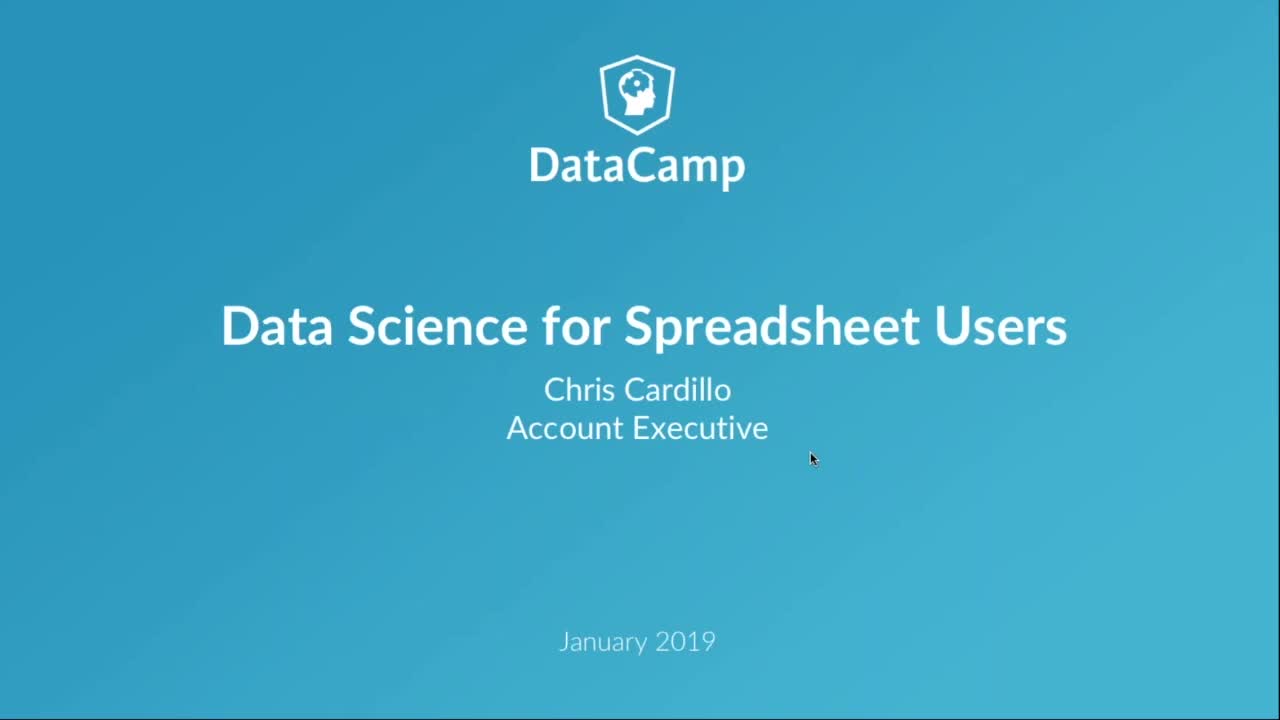Skip to main content





Related
webinar
Spend Less Time in Spreadsheets with SQL
Hate wrangling data in spreadsheets? SQL does it better.webinar
Make the most of your organization’s data with business intelligence
Learn how to scale data insights in your organization with business intelligencewebinar
Data Skills to Future-Proof Your Organization
Discover how to develop data skills at scale across your organization.webinar
Data Science for Business Leaders
Here's how to build a high-performance data team aligned with company strategy.webinar
Inside the Data Science Workflow
Learn all the steps to drive actionable insight in the data science workflow.webinar
Democratizing Data Science at Your Company
Data science isn't just for data scientists. It's for everyone at your company.Join 5000+ companies and 80% of the Fortune 1000 who use DataCamp to upskill their teams.
Loved by thousands of companies

